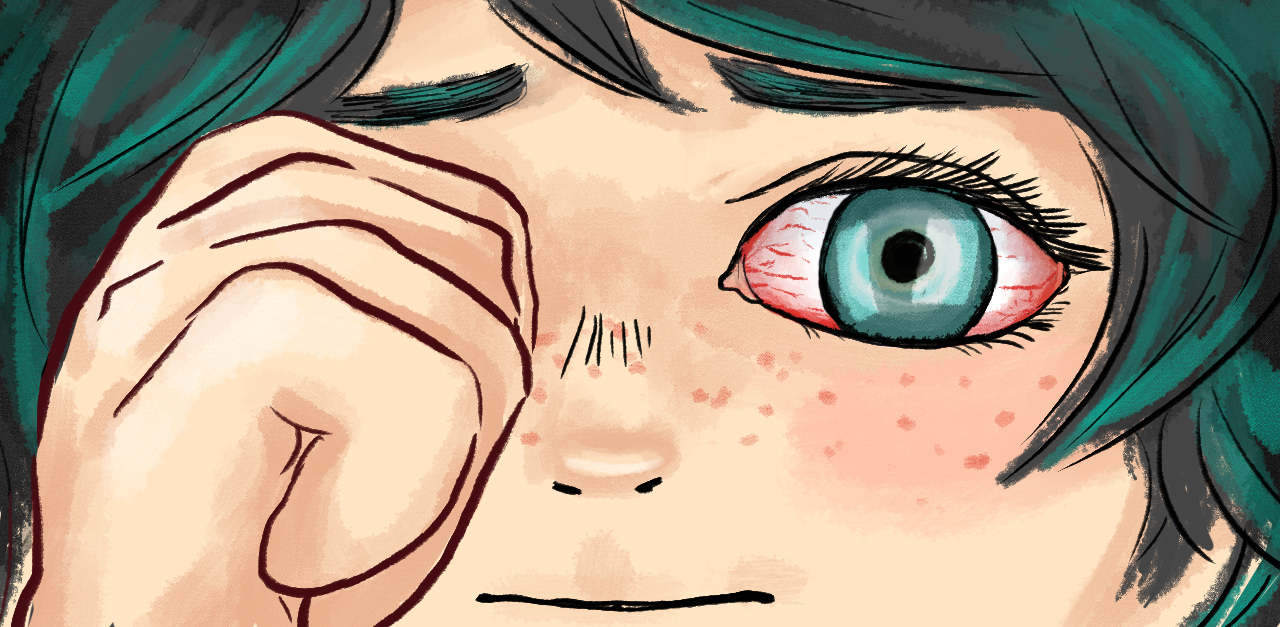
There's nothing more annoying than when it feels like there's something stuck in your eye. It becomes distracting, and it tempts you to touch your eye, which almost always makes your eye even more irritated.
As a one-off every now and then, it's pretty manageable. When it starts happening more frequently, you might begin to wonder what the cause is and how you can get it to stop.
The truth is that itchy or irritated eyes can be caused by any number of things. While some are easy to avoid or treat, other times it can be indicative of a more serious issue.
More from LittleThings: I Strapped Bunion Splints On My Feet Before Bed For A Week To Avoid Surgery
Check out this list of possible causes for your itchy or irritated eyes and see which one fits the bill. If you have any concerns, be sure to follow up with your doctor. It's extremely important to be careful with your vision, so be sure to let a professional make any defining calls.
Causes of Itchy and Irritated Eyes 1. Seasonal Allergies
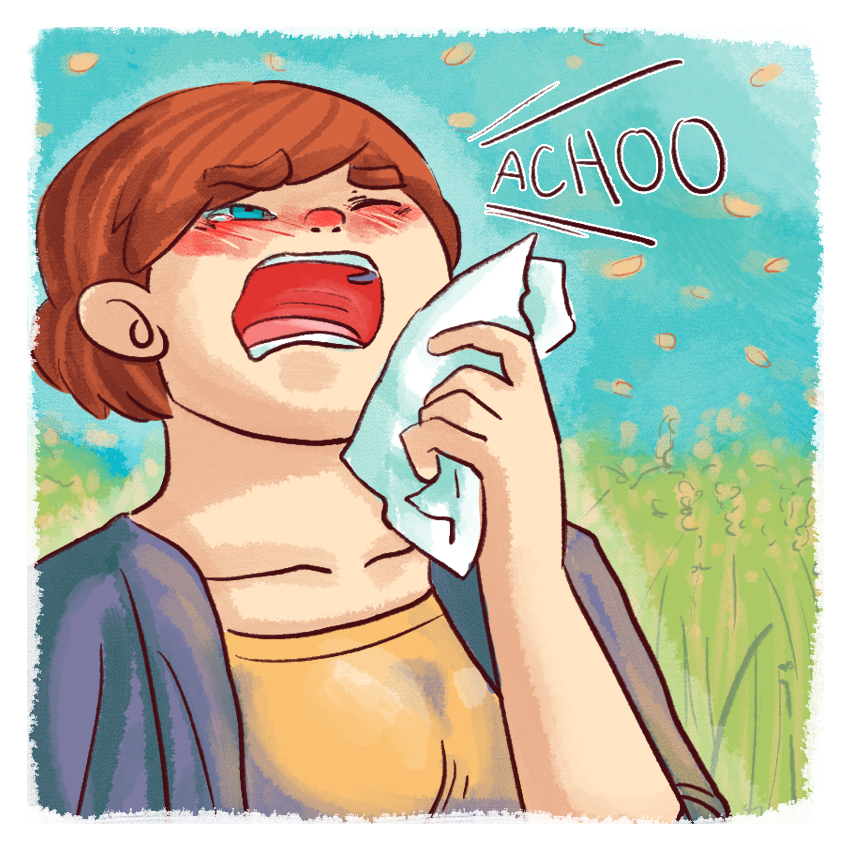
If you notice your eyes are bothering you at the same time of year every year, chances are the irritation in your eyes is due to seasonal allergies. According to the Mayo Clinic, seasonal allergies can cause eye redness, itching, and burning and can result in clear, watery discharge.
For itchy or irritated eyes, a topical treatment might be more effective than general allergy medication. As a result, possible treatments include steroid or anti-inflammatory eye drops, or artificial tears.
2. Perennial Allergies
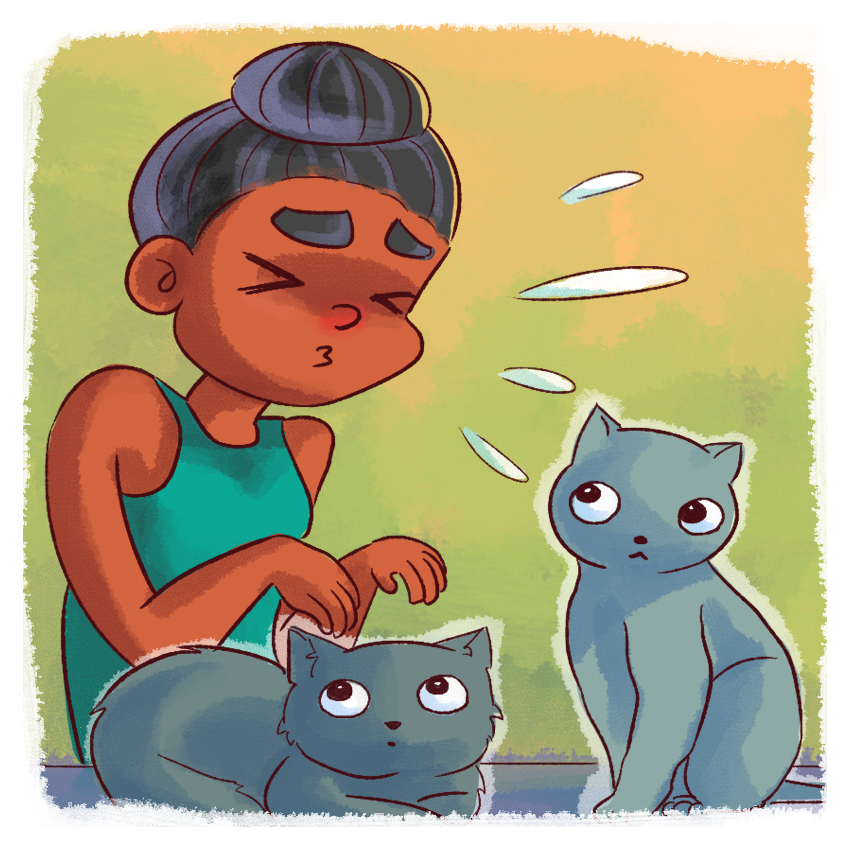
The American Academy of Allergy, Asthma, and Immunology cites household allergies such as dust mites, pet dander, and mold as causes for perennial allergies. Perennial allergies have similar symptoms as seasonal allergies, but they last all year. The effects of perennial allergies are typically milder, however.
3. Allergic Reactions
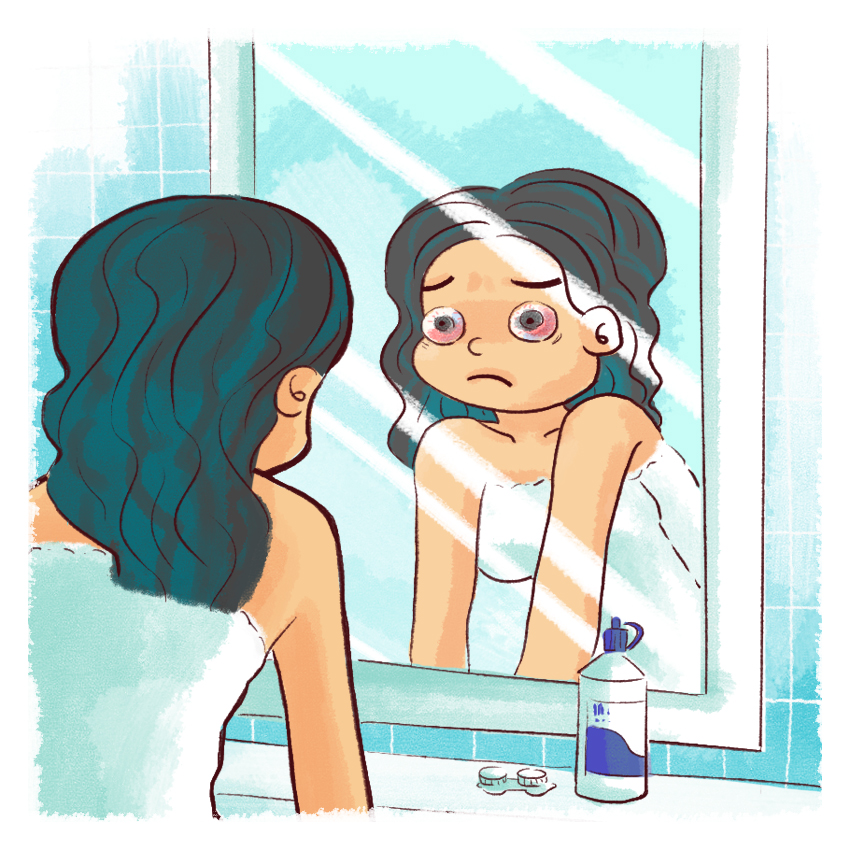
Less-common types of allergic reactions can occur in response to products you use in and around your eyes. For example, giant papillary conjunctivitis can develop if you become allergic to your contact lenses. Certain types of dermatitis can indicate that you're allergic to eye makeup, artificial tears, or your contact solution.
4. Chronic Dry Eye
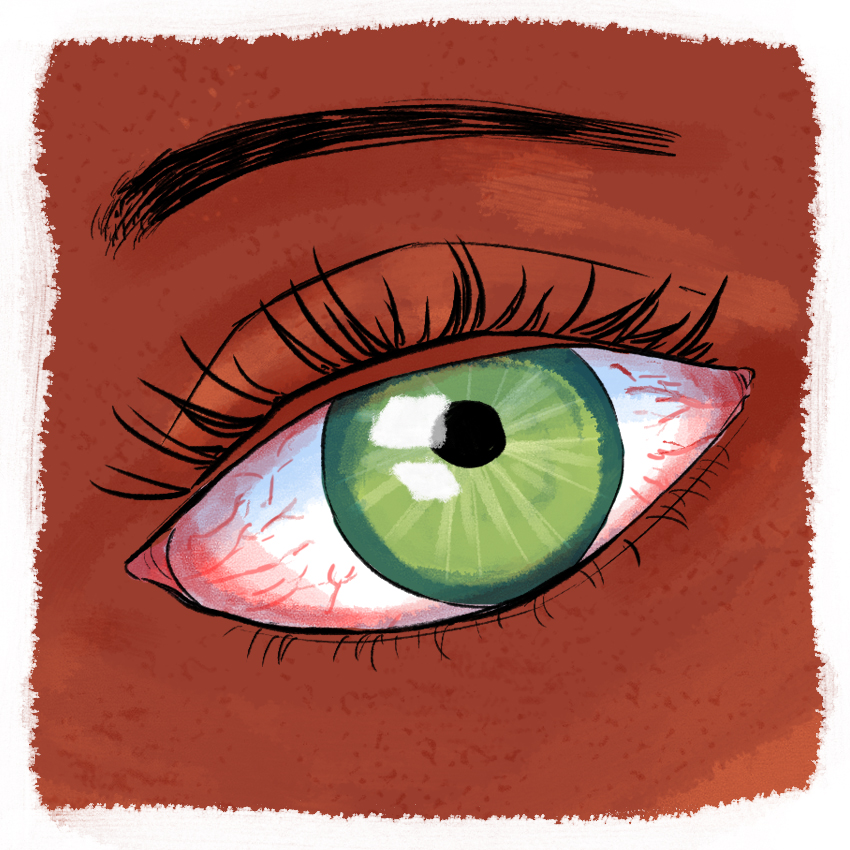
Believe it or not, the tears your eyes produce might not be quality tears. According to the American Optometric Association, people with chronic dry eye experience symptoms due to the eye producing low-quality or an insufficient amount of tears. This typically affects older adults.
Other symptoms of chronic dry eye include a feeling that something is in your eyes, excessive watering, blurred vision, and light sensitivity. If you think this could be what you're dealing with, heading to a doctor quickly is imperative, as allowing the condition to advance can lead to damage to the front surface of your eye and your vision overall.
5. Pink Eye
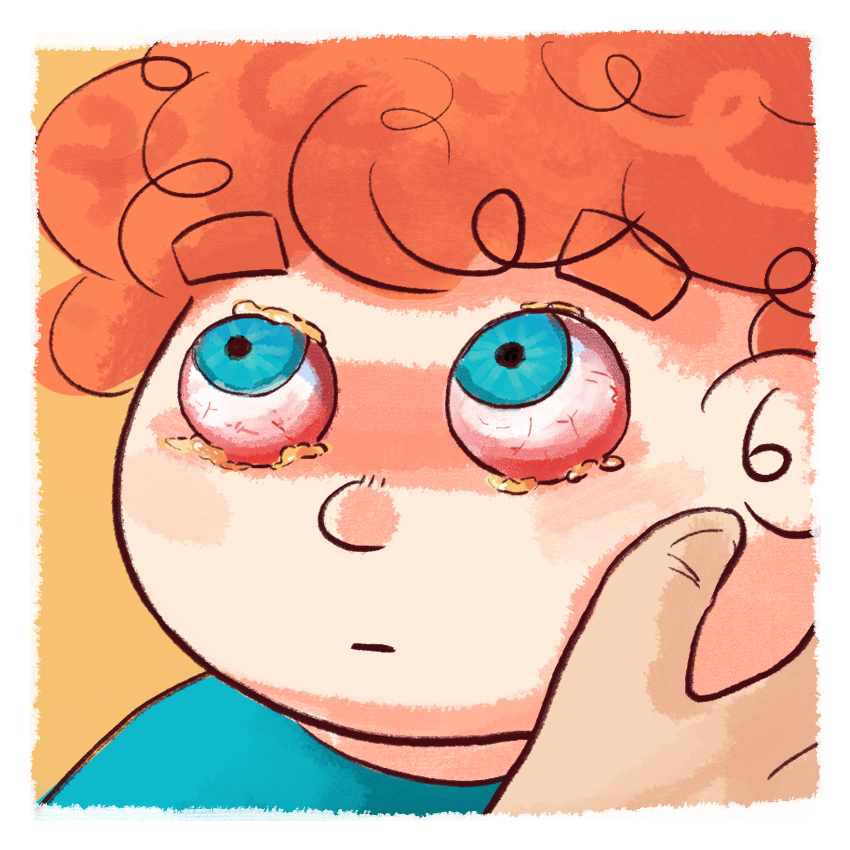
Many of us have been affected by pink eye at one point or another. Pink eye is typically caused by a bacterial or viral infection. In babies, it can also be caused by an incompletely opened tear duct.
If you're experiencing itchy eyes and that tell-tale redness, other signs you should look out for include a gritty feeling in the eyes and a mucus-like discharge that can crust over during sleep, causing difficulty opening your eyes upon waking.
6. Foreign Objects

You might think it's pretty difficult to get a foreign object in your eye, but it really isn't. Consider that anything from a small particle of an allergen to sawdust to glass can end up in your eye undetected and cause some serious damage before you can identify the problem.
If you feel pressure in your eye, experience unusual tearing or excessive blinking, or find yourself sensitive to light, there might be something you need to get out. If something sharp or jagged gets into your eye, or you believe your eye has been exposed to chemicals, it's imperative that you seek emergency medical treatment. It's better to be safe than sorry.
7. Rheumatoid Arthritis
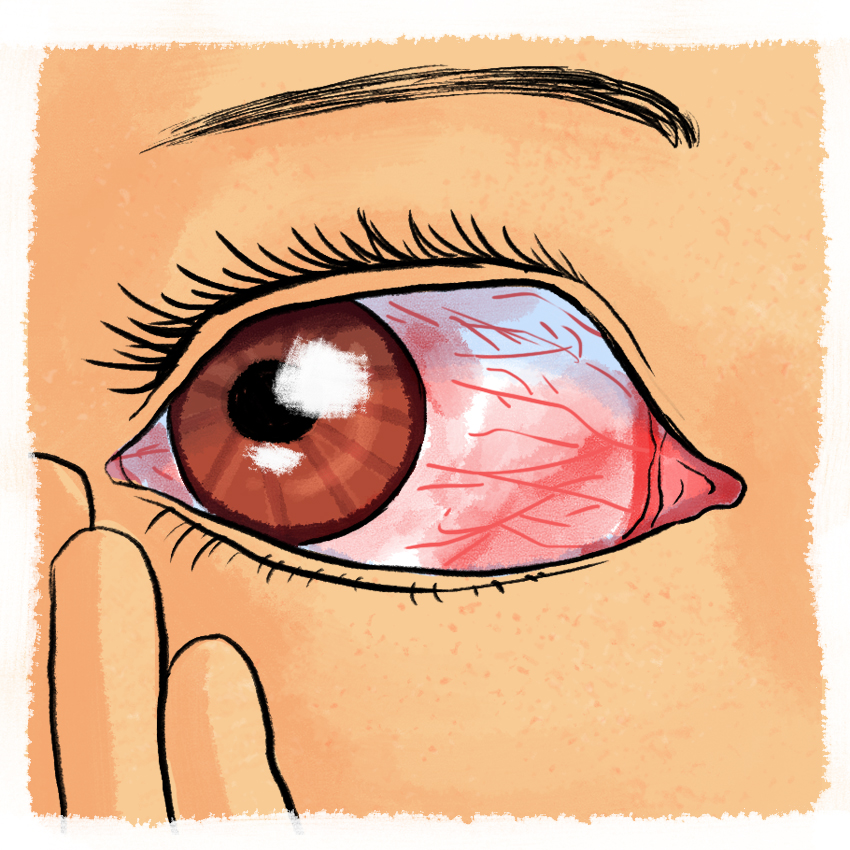
Rheumatoid arthritis is typically associated with inflammation of the joints, but according to the Mayo Clinic, your eyes can also be affected.
There are two ways RA can impact your eyes. In rare instances, RA can cause inflammation to the whites of your eyes, resulting in pain and redness. The more common effect is dryness, which can cause your eyes to be more susceptible to infection. Dry eyes caused by RA can also be a symptom of Sjögren's syndrome, as there is a link between the two illnesses.
8. Sjögren's Syndrome
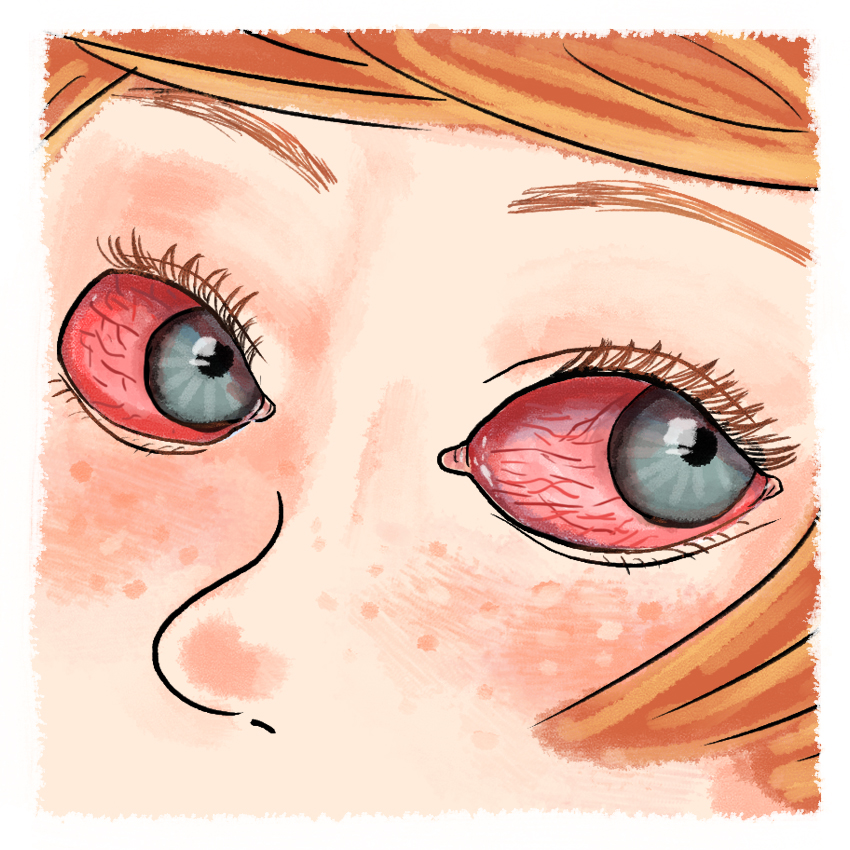
Sjögren's syndrome is characterized by dry eyes and a dry mouth. Inflammation and dryness can also affect other parts of the body.
According to the Mayo Clinic, a trigger such as bacteria or a virus is needed to activate the syndrome, although some people are also genetically predisposed.
9. Blepharitis
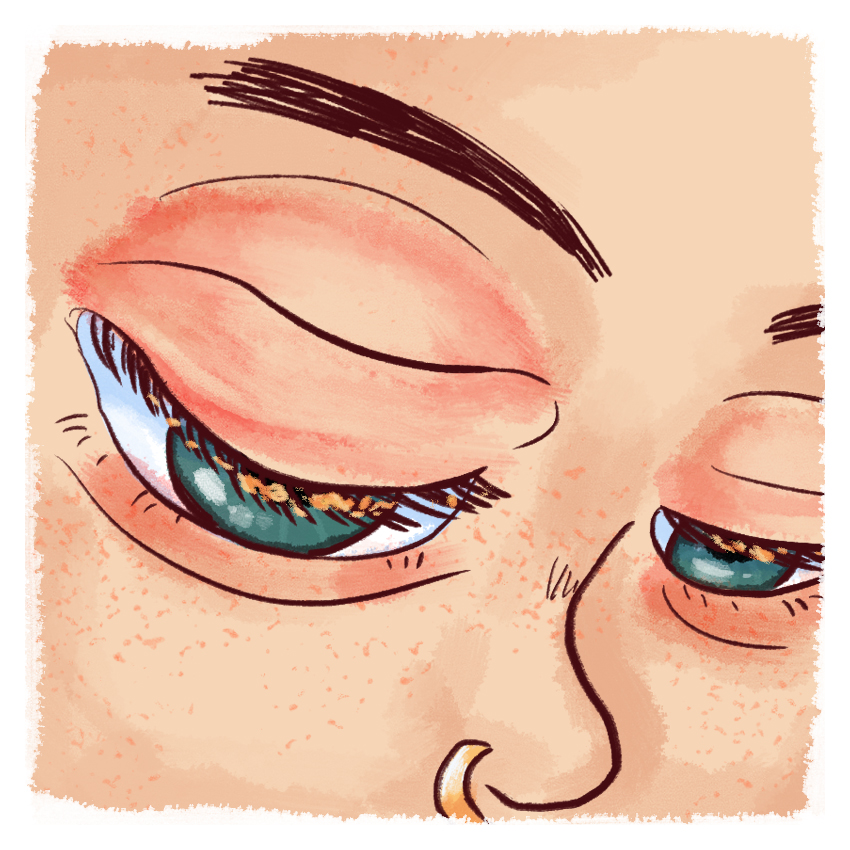
Blepharitis is an inflammation of the eyelids that occurs in both eyes. It typically involves the part of the eyelid where your eyelashes are located and occurs when the oil glands near the base of your eyelashes get clogged, explains the National Eye Institute.
Your itchy, irritated eyes could be due to blepharitis if your eyelids appear greasy, the skin surrounding your eyelids becomes flaky, and you begin losing eyelashes or notice them growing in the wrong direction. The cause of blepharitis is unclear, but it can lead to a sty or chalazion if untreated.
10. Digital Eye Strain
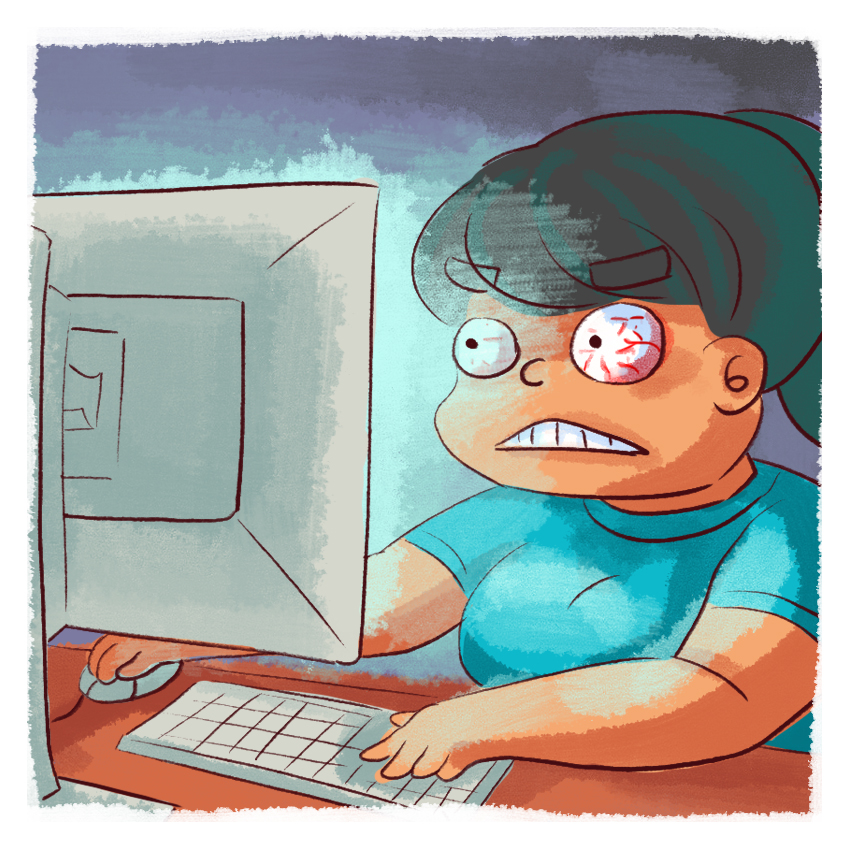
In the increasingly digitized world we live in, digital eye strain is becoming more and more common. The Vision Council characterizes digital eye strain as various types of eye discomfort related to screen use of longer than two hours. Over 20% of Americans who experience digital eye strain report dry, itchy eyes.
Luckily, vision technology has made advances to help combat eye strain. If you wear glasses already, you can inquire about lenses that lessen digital eye strain. If you don't wear glasses, you can wear nonprescription glasses that have lenses with this capability.
11. Atopic Keratoconjunctivitis
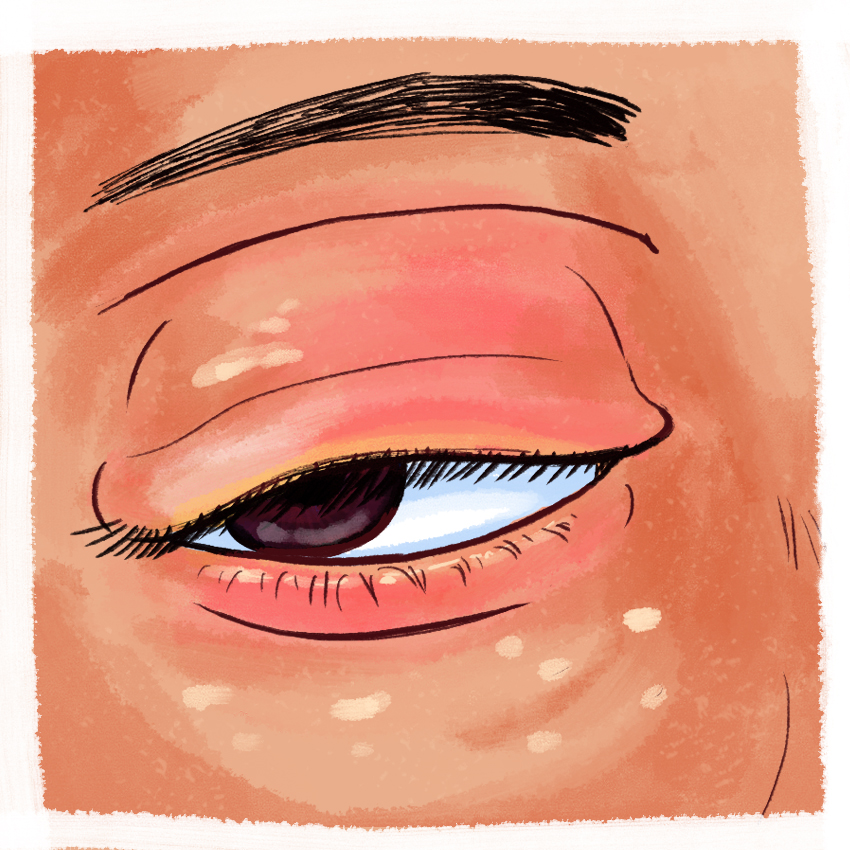
The Kellogg Eye Center at the University of Michigan describes atopic keratoconjunctivitis as the result of atopy, a condition where your immune system produces a higher-than-normal amount of antibodies to combat an allergen.
Along with itching and irritation, eyes might burn or be sensitive to light. Eyelids can become red and hardened. While you'll feel the effects year-round, symptoms might worsen in the winter.
12. Atopic Dermatitis
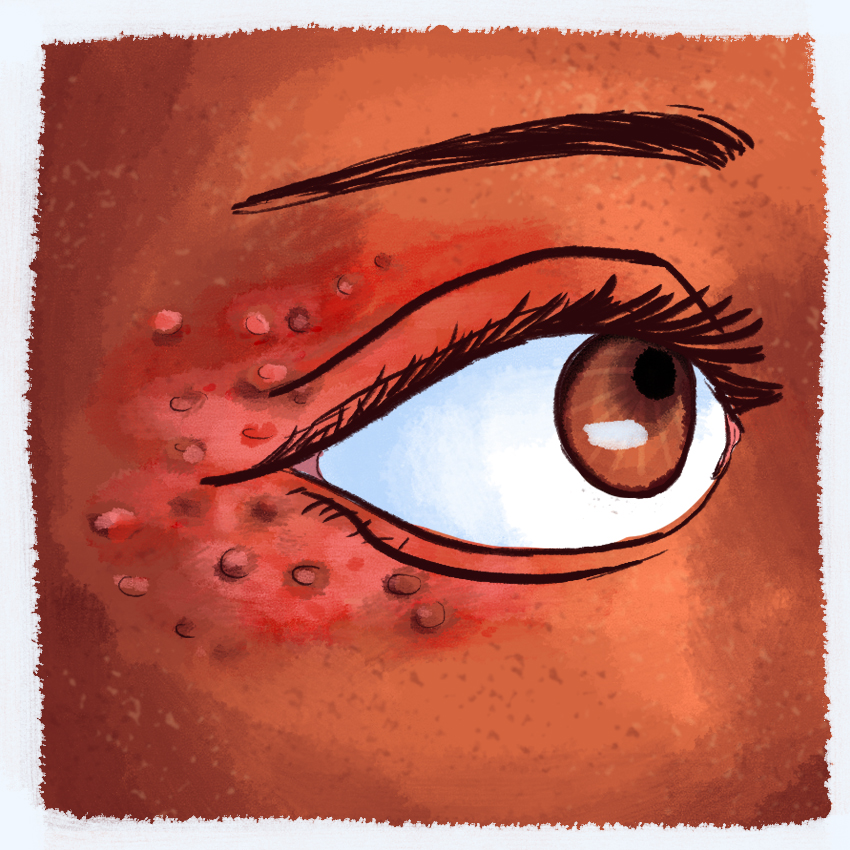
Flaky, reddened eyelids can be a symptom of atopic dermatitis, or eczema of the eyelids. This is more common in children, who are more susceptible to eczema. Touching your eyelids while experiencing symptoms of atopic dermatitis can make the skin change appearance.
13. Meibomian Gland Dysfunction
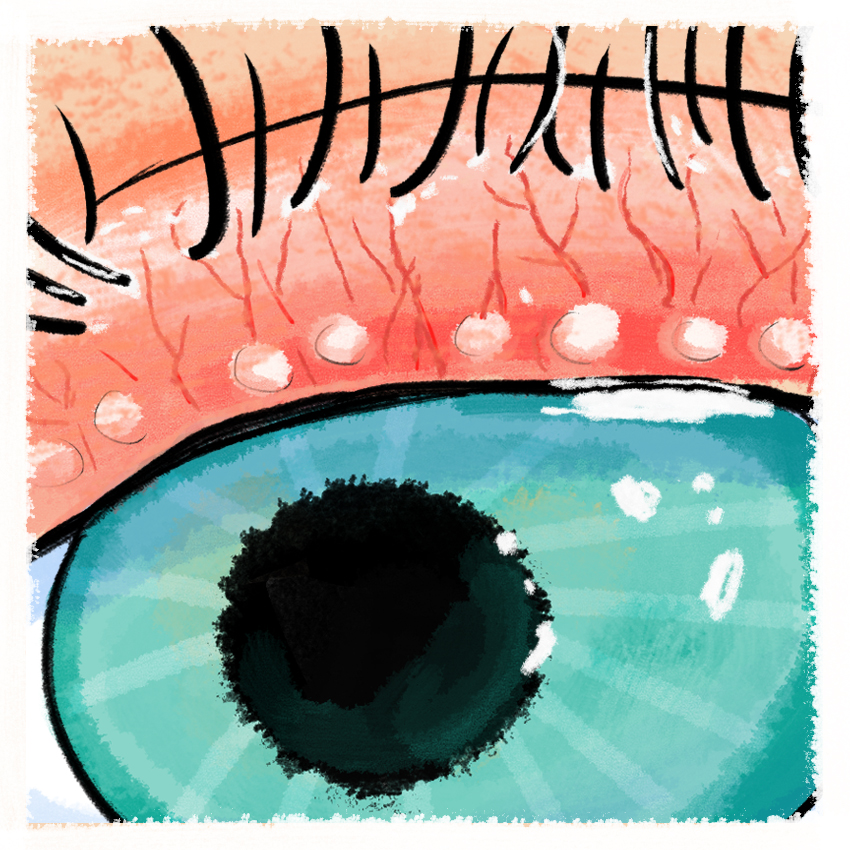
Despite the technical name, meibomian gland dysfunction is very common. WebMD describes this condition as when the glands in the eyelids that add oil to tears become blocked or otherwise impaired.
Without the oil in tears, they evaporate too quickly, causing dryness of the eyes. It's important to bring this to the attention of a doctor. Once functioning of the gland is lost, it cannot be restored.
14. Medications

Dry, irritated eyes can also be caused by certain medications. The Mayo Clinic cites the following medications as being linked to dry eyes: antihistamines, decongestants, hormone replacement therapy, antidepressants, and drugs for high blood pressure, acne, birth control, and Parkinson's disease.
If any of these illnesses or allergies seem like the cause of your itchy, irritated eyes, it's best to consult with a doctor to be sure. Make sure to ask questions and be clear on what is wrong and what your options for treatment are. Eye health is something to take very seriously, as vision is very delicate.




